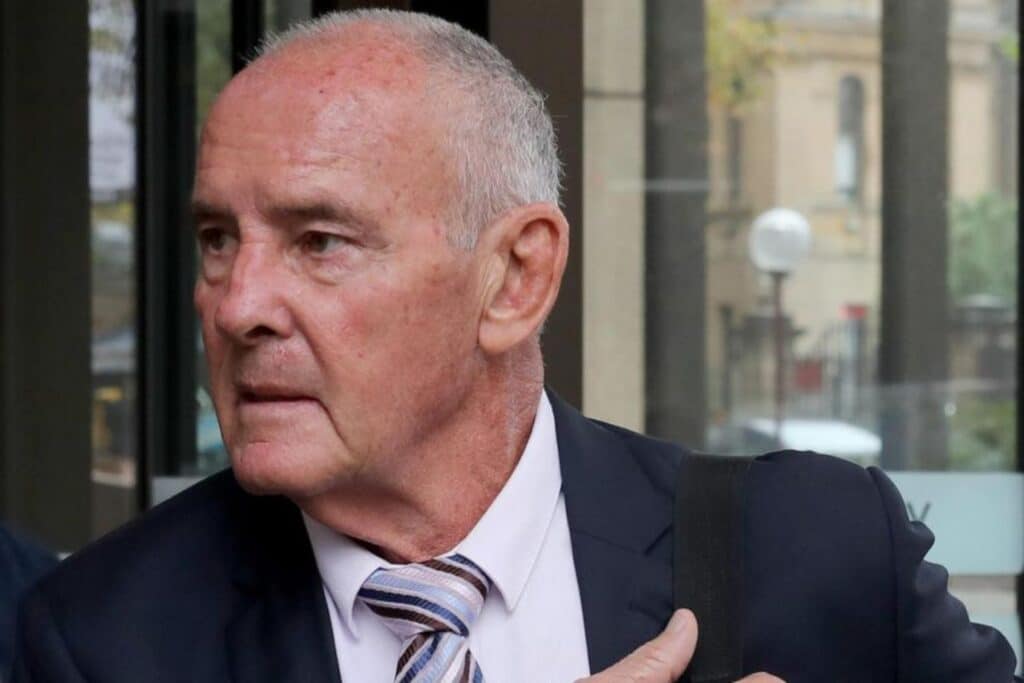Almost two years after he was sentenced to 24 years in prison for the murder of his wife Lynette, Chris Dawson will return to court today to appeal his conviction from August 2022.
Dawson’s appeal will rely on several new claims he will make, including a purported phone call from Lynette on the day of her disappearance from their Bayview home in January 1982 and a claim that Dawson suffered a “significant forensic disadvantage” due to the almost four decades from the time of Lynette’s disappearance to the matter going to trial.
Dawson’s lawyers will argue that during that time, critical evidence was lost and several key witnesses passed away, including family friend Phillip Day, who was present at the Northbridge Baths on the day Lynette was discovered to be missing.
In February 2001, Day gave a statement to police saying that he saw Dawson being summoned to the Northbridge Baths office and returning to say he’d just received a phone call from Lynette.
In the appeal, which will last over three days at the Court of Criminal Appeal in Sydney, lawyers representing Dawson will argue that their client suffered a “miscarriage of justice” because Justice Ian Harrison found beyond a reasonable doubt that Dawson did not receive a phone call from Lynette.
“I am satisfied beyond reasonable doubt that the phone call material and the sightings evidence do not establish that Lynette Dawson was alive in circumstances to which they separately relate,” he said at the time of sentencing.
“I’m satisfied that none of the alleged sightings was a genuine sighting of Lynette Dawson.”
In his judgment, Justice Harrison also said that Dawson had lied about his relationship with a young girl and about his desire to resume his relationship with his wife.
This week, Dawson’s lawyers will argue that in 2022, Justice Harrison erred in finding their client told several lies which indicated his “consciousness of guilt”.
His legal team will argue that there was in fact “inadequate” evidence to prove that Lynette was not alive after January 9 — the day of her disappearance.
During the trial in 2022, the Crown alleged that Chris Dawson had killed Lynette and disposed of her body, so that he could have an “unfettered relationship” with a teenage babysitter and his former school student, known as JC.
The former rugby league player pleaded not guilty and maintained his wife had left home to start a new life because of his affair.
During his judgment, Justice Harrison noted it was clear Dawson had an obsession with JC and that he harboured a “possessive infatuation” with his young student just weeks after Lynette’s disappearance.
Last September, Dawson was sentenced to an additional three years in prison for unlawful sexual activity with a minor. District Court Judge Sarah Huggett found Dawson guilty of unlawful sexual activity with a former student of his during the 1980s, who was 16 at the time.
The woman, referred to as AB in court, gave evidence during the trial claiming the pair kissed in Dawson’s car in 1980. Weeks later, Dawson took his 16-year-old student to his parents’ house in Maroubra, where they engaged in sexual activity.
“The victim did not tell anyone because the offender told her to keep it a secret,” Judge Huggett told the court.
“The offender took the victim from the northern suburbs of Sydney to the eastern suburbs knowing he would be alone with her.”
The “no body, no parole” laws, also known as “Lyn’s law” passed by NSW Parliament will ensure that Dawson won’t be eligible for parol until he reveals where Lynette is buried.
In his sentencing remarks, Justice Harrison noted that Dawson would “probably die in jail” before the expiry of his non-parole period in August 2041, when Dawson will be 93 years old.
Justice Harrison said the evidence did not reveal how Dawson killed his wife, or where her body was located, but he was satisfied beyond reasonable doubt that he did kill her.
Lynette’s body has never been found and she has never contacted her friends or family, including her two children, since her disappearance in January 1982.



